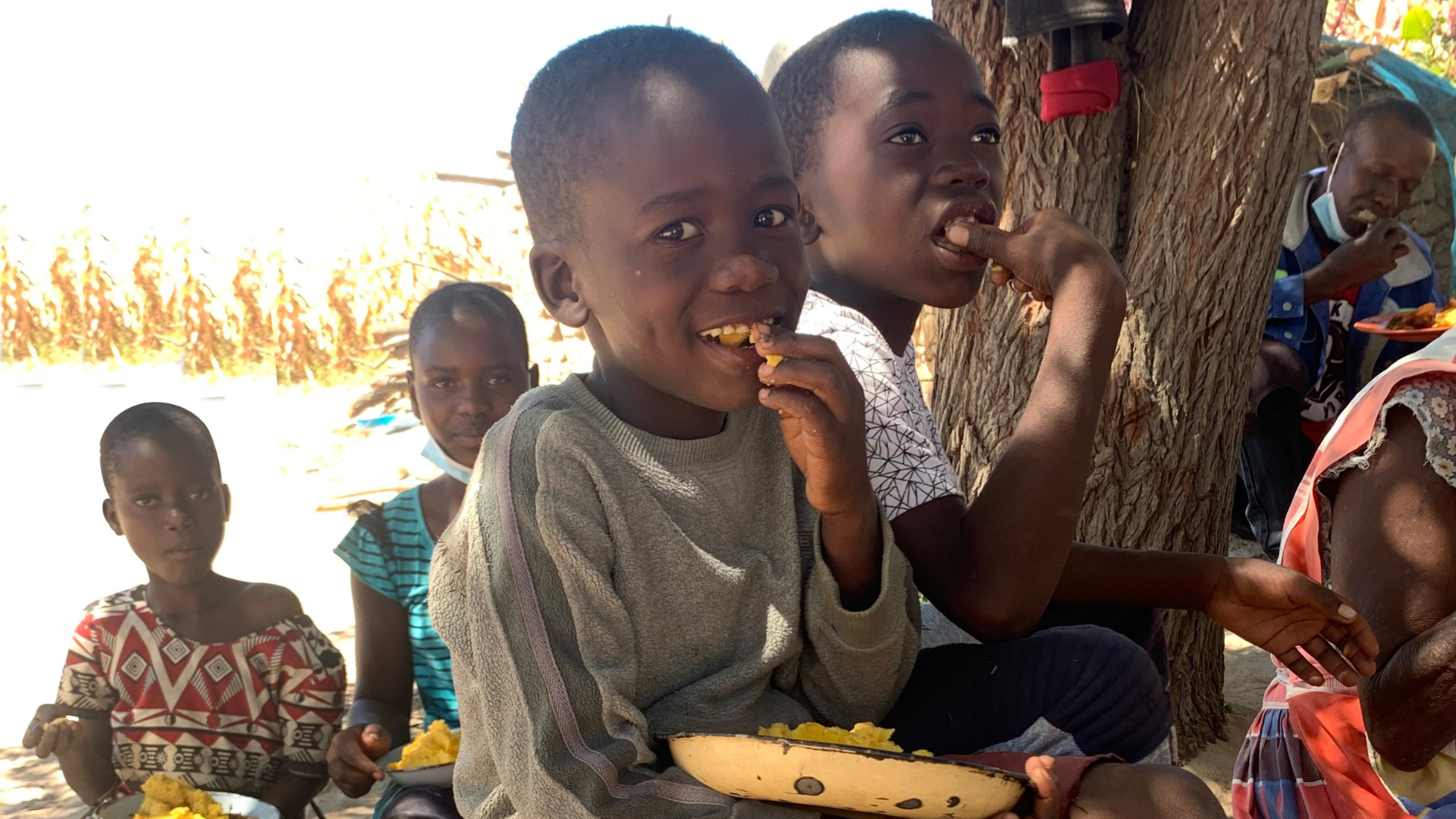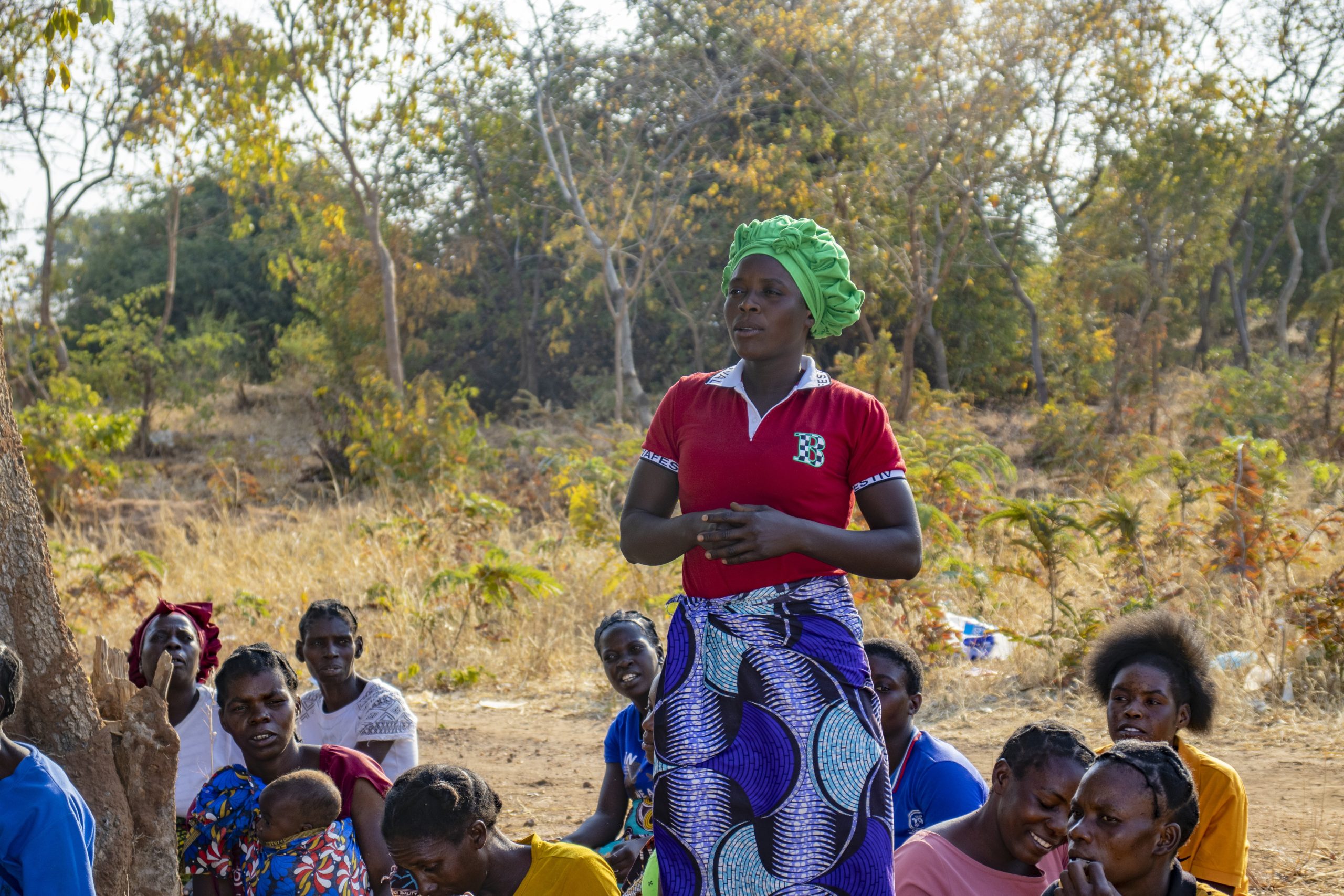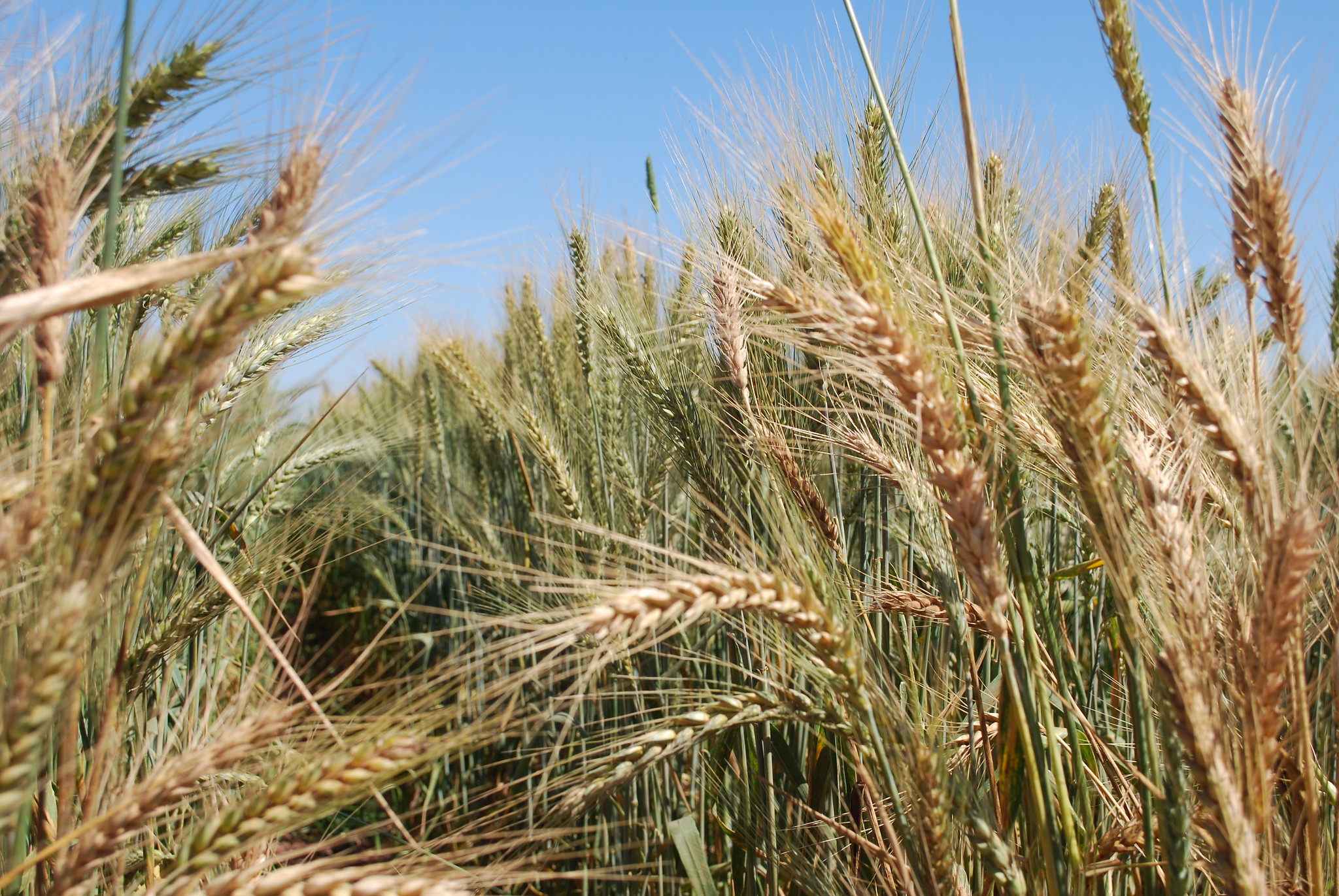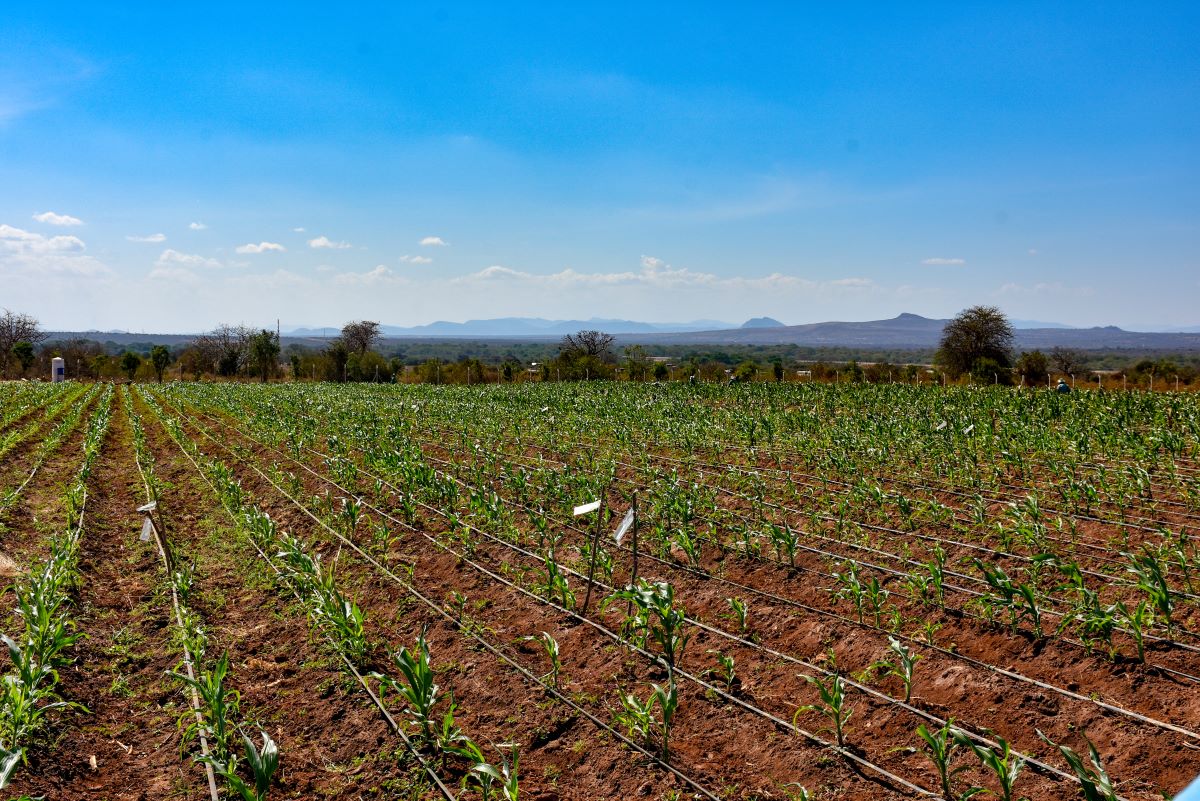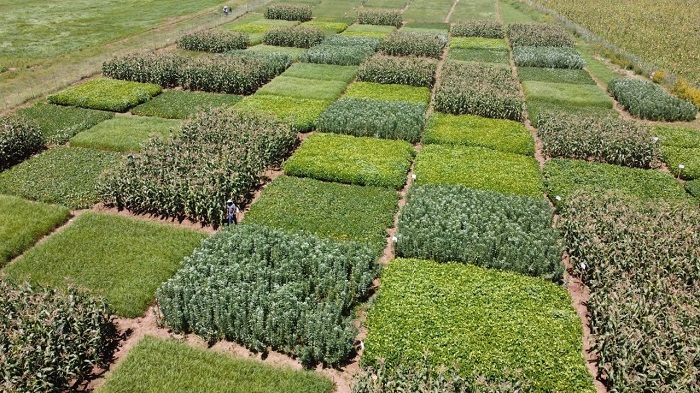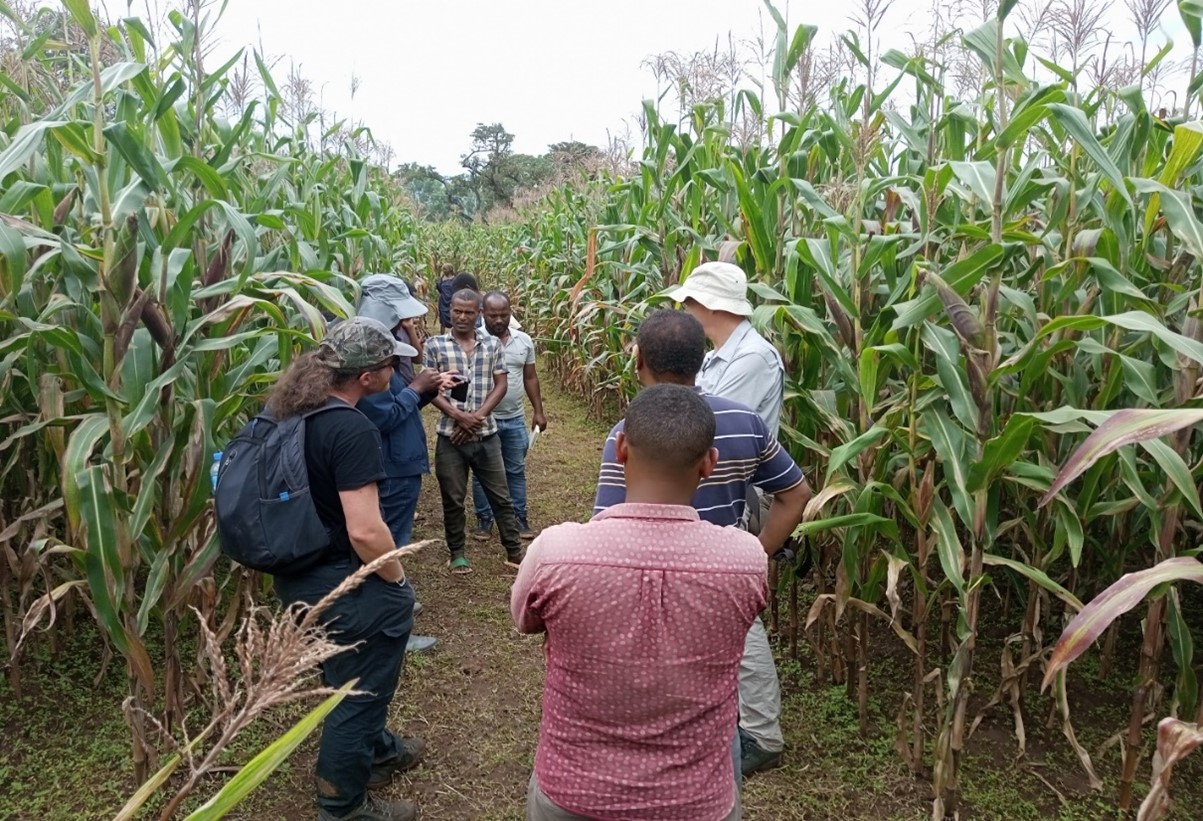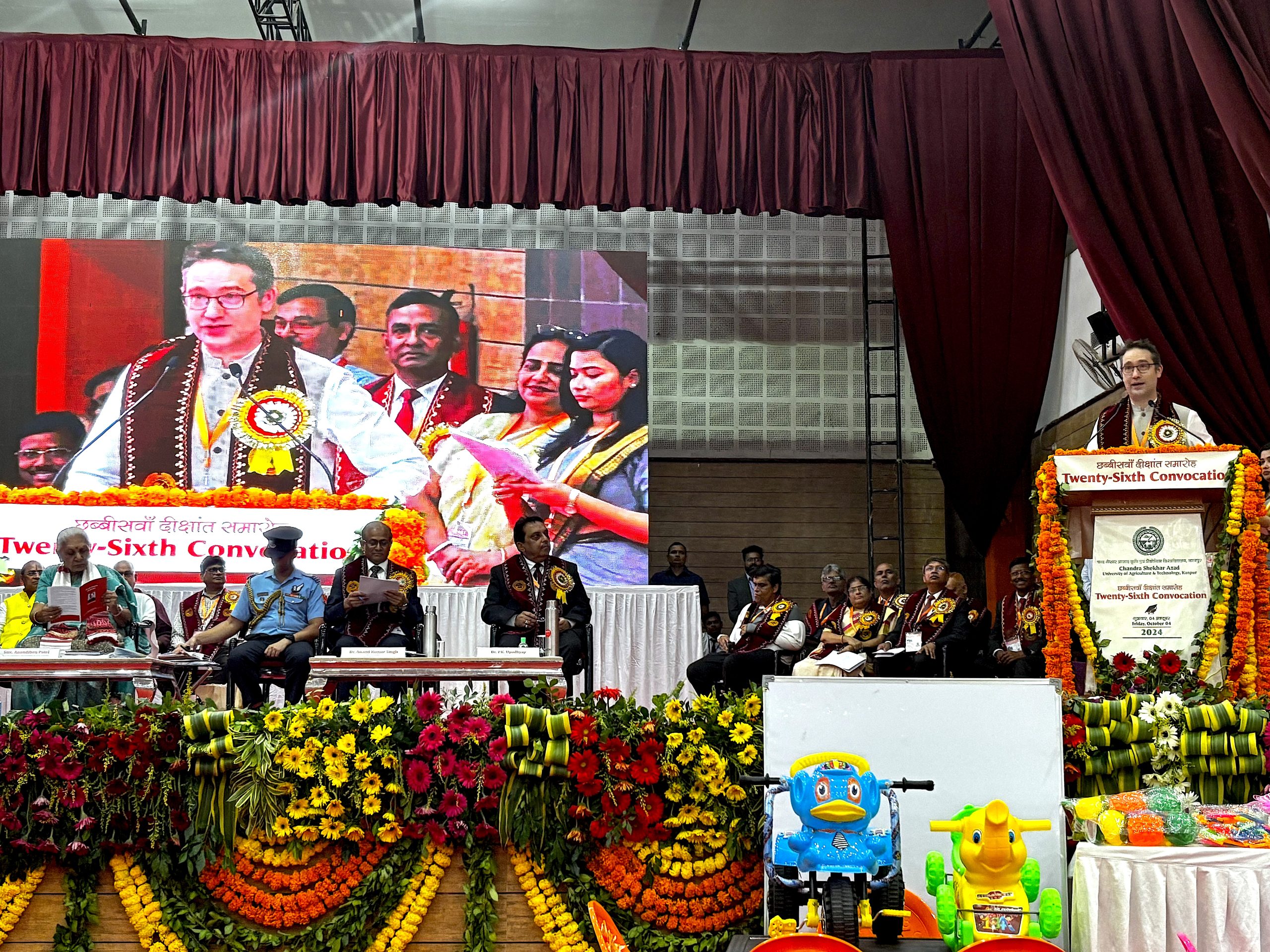Nutrition, health and food security
As staple foods, maize and wheat provide vital nutrients and health benefits, making up close to two-thirds of the world’s food energy intake, and contributing 55 to 70 percent of the total calories in the diets of people living in developing countries, according to the U.N. Food and Agriculture Organization. CIMMYT scientists tackle food insecurity through improved nutrient-rich, high-yielding varieties and sustainable agronomic practices, ensuring that those who most depend on agriculture have enough to make a living and feed their families. The U.N. projects that the global population will increase to more than 9 billion people by 2050, which means that the successes and failures of wheat and maize farmers will continue to have a crucial impact on food security. Findings by the Intergovernmental Panel on Climate Change, which show heat waves could occur more often and mean global surface temperatures could rise by up to 5 degrees Celsius throughout the century, indicate that increasing yield alone will be insufficient to meet future demand for food.
Achieving widespread food and nutritional security for the world’s poorest people is more complex than simply boosting production. Biofortification of maize and wheat helps increase the vitamins and minerals in these key crops. CIMMYT helps families grow and eat provitamin A enriched maize, zinc-enhanced maize and wheat varieties, and quality protein maize. CIMMYT also works on improving food health and safety, by reducing mycotoxin levels in the global food chain. Mycotoxins are produced by fungi that colonize in food crops, and cause health problems or even death in humans or animals. Worldwide, CIMMYT helps train food processors to reduce fungal contamination in maize, and promotes affordable technologies and training to detect mycotoxins and reduce exposure.
Climate Change and Child Malnutrition in Zimbabwe: Evidence to Action
 Climate adaptation and mitigation
Climate adaptation and mitigation
How Atubandike dialogues are redefining gender and youth inclusion in Zambian agriculture
 Gender equality, youth and social inclusion
Gender equality, youth and social inclusion
CIMMYT’s Atubandike initiative empowers women and youth in Zambia, promoting inclusivity and resilience in agriculture through dialogue and capacity building.
Enhancing agricultural research with FAO’s AGRIS and AGROVOC programs: A conversation with CIMMYT’s knowledge management team
 Innovations
Innovations
CIMMYT leverages AGRIS for global visibility and AGROVOC for seamless data access, advancing its mission to share vital agricultural knowledge.
Exploration of options for functional seed systems and understanding of market needs for cereals and pulses in sub-Saharan Africa
 Environmental health and biodiversity
Environmental health and biodiversity
The Seed Systems and Market Intelligence team of CIMMYT’s Sustainable Agri-Food Systems Programme met in Kenya for a three-day retreat to review cutting-edge research on seed systems and market dynamics.
CIMMYT and Novo Nordisk Foundation expand collaboration to drive sustainable agriculture
 Capacity development
Capacity development
CIMMYT and the Novo Nordisk Foundation are partnering to advance sustainable agriculture, address food security and climate change, and empower farmers worldwide.
Training the next generation of plant breeders with VACS
 Capacity development
Capacity development
The Vision for Adapted Crops and Soil (VACS) Capacity Project aims to train scholars and professionals in Africa in the latest plant breeding technologies
Rockefeller Foundation Invests in Nature to Support Indigenous Peoples and Rainforest Communities at COP29
 Climate adaptation and mitigation
Climate adaptation and mitigation
Source: AP News ()
The Rockefeller Foundation’s grant to CIMMYT supports regenerative agricultural research in Mexico, advancing sustainable solutions for food security, climate resilience, and biodiversity conservation
Improving Ethiopia’s Agricultural Systems Through Collaborative Research
 Climate adaptation and mitigation
Climate adaptation and mitigation
Discover how CIMMYT and Ambo University’s groundbreaking collaboration on climate-smart agriculture and innovative crop rotations is transforming Ethiopian farming for sustainable food security
CIMMYT at Borlaug Dialogue 2024: Building Tomorrow’s Resilient Food Systems Today
 Innovations
Innovations
CIMMYT’s impactful presence at the Borlaug Dialogue 2024 underscored its commitment to sustainable agriculture and resilient food systems through global partnerships, innovative initiatives, and recognition of key experts advancing food security worldwide
Svalbard Global Seed Vault Historic Deposit Bolsters Food Security Amid Crises
 Climate adaptation and mitigation
Climate adaptation and mitigation
Source: Seed today ()
CIMMYT’s deposit of 5,400 maize and wheat samples to the Svalbard Seed Vault highlights its commitment to safeguarding crop diversity for global food security
A blueprint for soil health initiatives
 Environmental health and biodiversity
Environmental health and biodiversity
Methods developed under CIMMYT’s GAIA project and adopted by national partners recognized as a success for acid soil remediation in Ethiopia
International recognition for CIMMYT: Honorary Doctorate Awarded to Bram Govaerts in India
 Climate adaptation and mitigation
Climate adaptation and mitigation
Bram Govaerts received an Honorary Doctorate, highlighting CIMMYT’s global impact on food security through innovation
Can We Transform World Food Day Into A Celebration?
 Climate adaptation and mitigation
Climate adaptation and mitigation
Source: Forbes ()
CIMMYT’s focus on promoting biodiversity and resilient crops, as highlighted by Sieglinde Snapp, plays a crucial role in improving food security and livelihoods
Context-dependent agricultural intensification pathways to increase rice production in India
 Climate adaptation and mitigation
Climate adaptation and mitigation
Source: Nature Communications ()
A Nature Communications study shows that targeted nitrogen and irrigation interventions can sustainably boost rice yields and profitability in India
The Sudan Food Security Initiative: Helping Farmers Produce High-Quality Seed Varieties
 Capacity development
Capacity development
CIMMYT’s SASAS program boosts food security in conflict-affected Sudan by introducing high-yielding sorghum varieties through demonstration fields. Part of the Sudan Food Security Initiative (SFSI), it strengthens informal seed systems and helps farmers increase yields.
SASAS and partners use the Mega Demonstration Protocol with mother and baby trials in 10 villages in Kassala State to promote drought-tolerant sorghum adoption.
